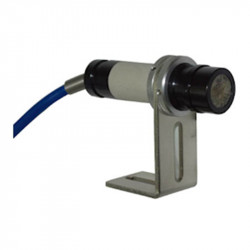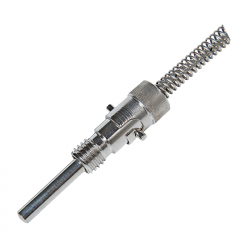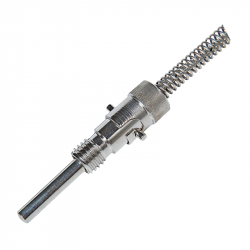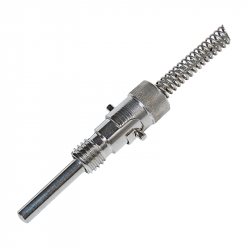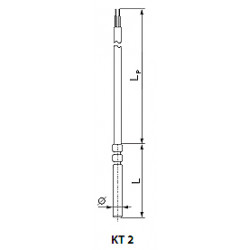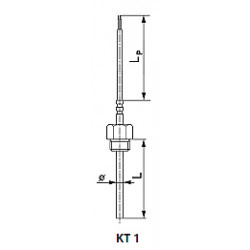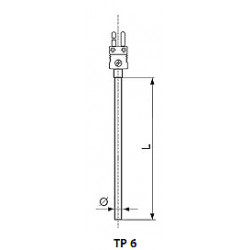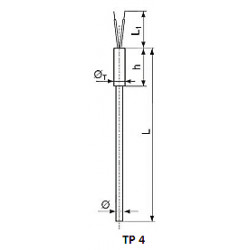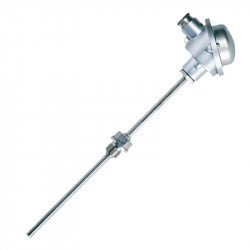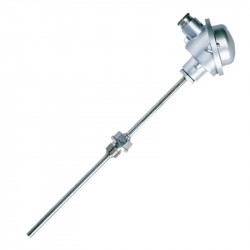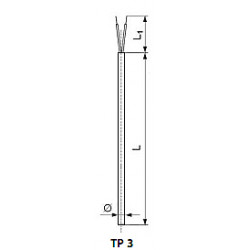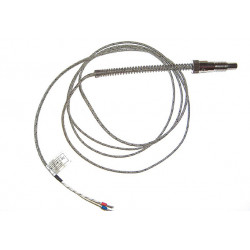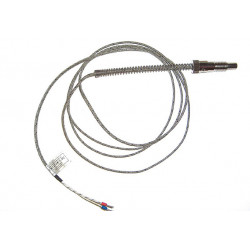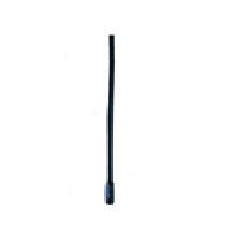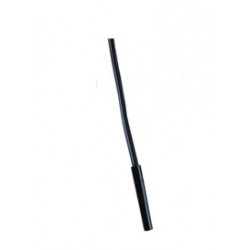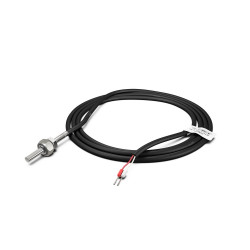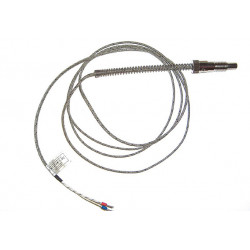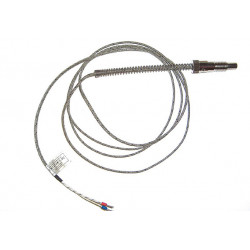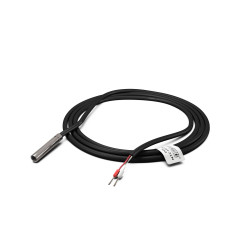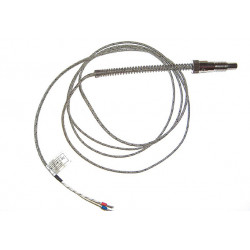Thermocouples
Categories
- Contactless temperature sensors for mobile objects - C015
- Thermoelectric temperature sensor with replaceable measure jacket insert in a metal protective pipe TD1
- Thermoelectric temperature sensor with replaceable measure jacket insert in a metal protective pipe TP1
- Thermoelectric temperature sensor with replaceable measure jacket insert in a metal protective pipe TD2
- Thermoelectric temperature sensor - 3 point measurement. Type: w
- Thermoelectric temperature jacket sensor with free endings. Type: tp3
- Thermoelectric temperature jacket sensor with sleeve. Type: tp4
- Thermoelectric temperature jacket sensor with plug. Type: tp6
- Thermoelectric or resistant temperature sensor. Type kt1
- Thermoelectric or resistance temperature sensor. type: kt2
- Straight thermocouple (J,K,N) - TC-07
- Coat thermocouple (J, K, N) – TC-42
- Thermocouple with thread terminal (J ) – ETB
We’re offering a wide assortment of thermocouples for industrial applications and automation.
Temperature measurement is one of the most important actions in automation - in industrial conditions, the most commonly used are thermocouples and resistance temperature sensors.
Thermocouples - application
Thermocouples, also called thermoelectric temperature sensors, are one of the most popular solutions in the industry. Their main applications include laboratories, transportation, measuring-control apparatus, data systems, multi-channel devices, thermovision systems, and military equipment.
Benefits of thermocouples:
- low price,
- simple, stable, and faultless construction,
- predictable output voltages,
- possibility to use in chemically aggressive environments,
- wide range of temperatures, from -100°C up to over 2500°C
- highly precise measurement.
Types of thermocouples and their applications
For thermocouple's construction, various types of metals are used, from which each is intended for a different application.
E type - alloys for temperatures from -200°C to 871°C. Used in atmospheres from vacuum to slightly oxidative and in low temperatures.
J type - alloys for lower temperatures (0°C to 600°C). Used in the chemical industry.
K type - industrial standard up to 1250°C.
T type - alloys for temperatures from -200°C to 350°C. Common in the food industry.




